Elios came about in 2015, when we both found ourselves having to decide on the future of our career paths.
We were both dissatisfied with our jobs, both fed up with working for other people’s dreams. Both in love for natural wines.
Despite coming from different backgrounds, what we had in common was a love of nature and of Sicily and the desire to revitalise our families’ agricultural holdings, which up to that point had been under the thumb of the industrial groups to which we sold our grapes and olives for next to nothing.
The idea was to use a low intervention winemaking process (without using chemicals or additives etc.), from the grapes that our parents sold to major wineries, thus giving the grapes the chance to truly express themselves and recover their lost dignity.
Our start was not simple. We bet on our lands and dared on something unusual for our area.
Wines
Bianco Macerato
1/3 Catarratto, 1/3 Grillo, 1/3 Zibibbo
Composed of 1/3 Catarratto, 1/3 Zibibo and 1/3 Grillo, the Elios Modus Bibendi Bianco Macerato Non-Filtrato is hand-harvested from vines grown in chalky clay soils at ideal phenolic maturity: Grillo and Zibbibbo are harvested in the last week of August, while Catarratto in the second week of September. Grillo and Zibibbo are then pressed, fermented with native yeast, and macerated (for 20 days) together, while the Catarratto does its fermentation and maceration (20 days) in a separate steel tank. After the fermentation is done it is blended in with the other 2. Next the wine sits on its lees for 7 months before being bottled unfined and unfiltered. This tastes like the sun, with bright, savory, slightly oxydative notes with beautiful structure.
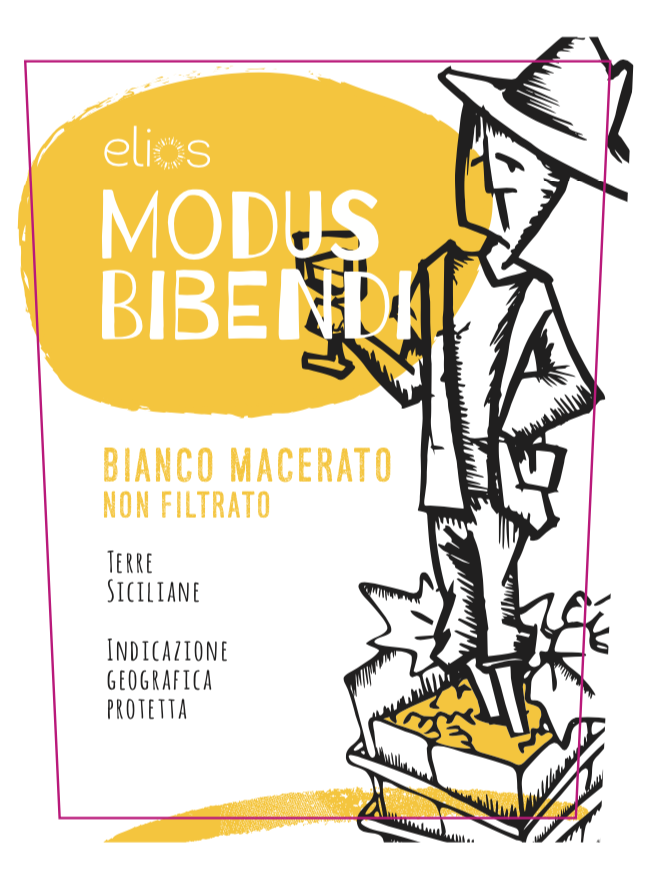
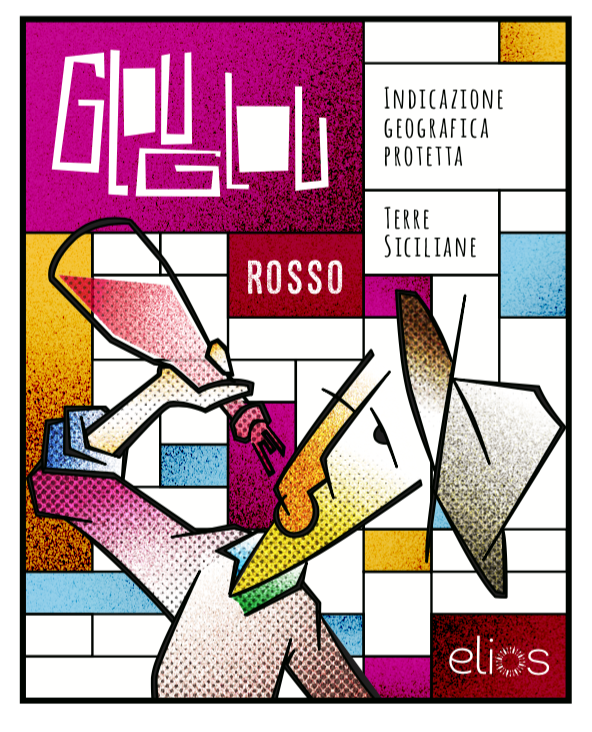
GLOU GLOU
This easy-to-drink, chillable natural red is made from Nerello Mascalese grown in Monreale on clay and black volcanic soils. This year, Guido added a drop of Nero d’Avola as he felt it would add complexity and richness to the mix, and man is the wine great. The grapes are hand-picked, then brought to the winery where they macerate for 1 day. Fermentation takes place using wild yeasts in stainless steel, then the wine is aged in stainless for 7 months. It is bottled unfined and unfiltered. Talk about scrumptious, this should be everyone’s go-to chuggable red all year round.
Rosso
100% Nero D’Avola
The Modus Bibendi Nero D’Avola comes from 12 year old vines planted to heavy clay and chalky soils on hillsides. Hand-harvested, it is wild yeast fermented in stainless then transferred to chestnut barrels to rest for around 9 months. After a light filtration, the wine is bottled with a drop of sulfur for stability. The wine is dark but fresh, with black cherry, smoke, hay, earthy notes, juicy on the palate with a lovely minerality balancing it off until it ends in along chewy finish
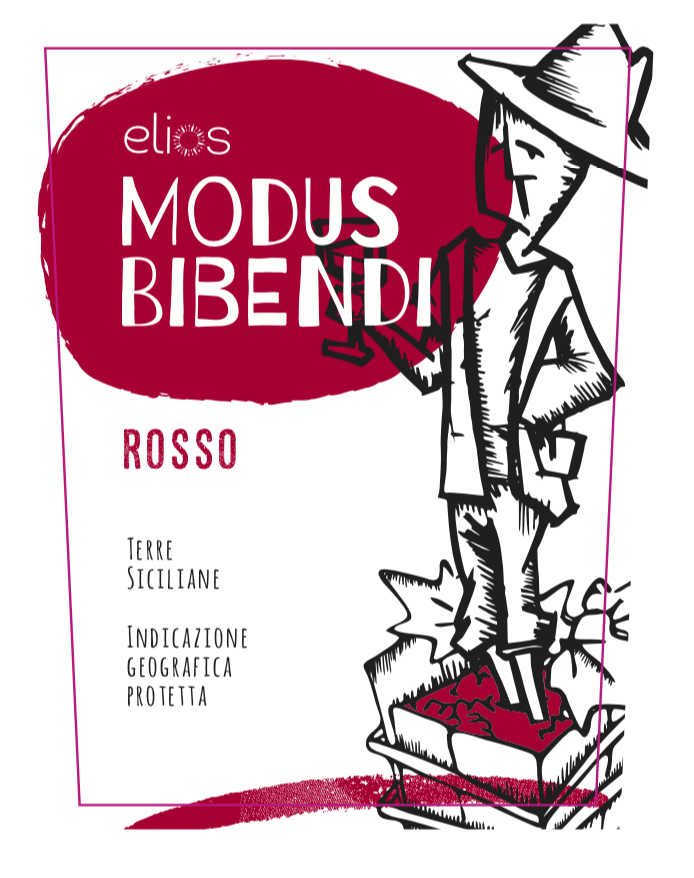
Image Sources: foodiesfeed, WOCinTechChat, GraphBerry
Beautifully located on the gentle and undulating slopes of the Pesaro Hills. The largest section lies on the eastern bank of the Metauro River. The soil formation consists of grayish calcareous mud, which turns light blue just a few meters deep. The vineyards face south-southeast at 200 meters above sea level and stretch across 48 hectares of land. Only estate fruit is used in making the wines.
Grapes cultivated:
White Grapes: Bianchello – Verdicchio – Chardonnay – Moscato – Sauvignon.
Red Grapes : Sangiovese – Montepulciano – Lacrima– Cabernet Sauvignon.
Organic in the cultivation \ in the field but we do not certificate the “organic process”.
-There is no use of nitrogenous substances in the soil: we cultivate the bean in a biological way between the rows that are cut and mixed with the earth to provide a nitrogen value to the soil in a natural way.
-There is NO use of pesticides in the vineyard between the plants, we kill the weeds with a blade that lifts the soil by detaching the roots
-100% of the energy of the Sun for all the productions of our company.
-We are organic in the management of the vineyard, but we can choose science in case of need as we do for our body. In wines our level of SO2 inserted is lower than the limit used for BIO wine. The Yeast are naturally selected.
Wines
Guerrieri ‘Celso’ Bianchello del Metauro Superiore


Guerrieri Colli Pesaresi Sangiovese
GUERRIERI COLLI PESARESI Guerriero NERO

Image Sources: foodiesfeed, WOCinTechChat, GraphBerry
In the Scala family since 1949, the domaine is now run by Luigi Scala and son Francesco, who leads the production of Cirò wines following family traditions. From the growing of the grapes to the refinement and aging of the wines, he favors quality over quantity and aims to produce distinguished Calabrian wines.
18 hectares for an overall production of 100,000 bottles. Grapes are native varieties such as Gaglioppo, Magliocco, Nerello, Mantonico and Greco. They are cultivated in espalier on the hinterland plains and hills, on argillaceous and sandy soil. Vine ages 15-20 years.
Farming/vinification practices: Scala exclusively uses organic products for the past 10 years, such as lupins to fertilize the vineyards; it provides the soil with nitrogen and helps eliminate weeds. Certified organic, starting with the 2016 vintage.
We don’t use any animal protein like albumin or casein for stabilizing the wines. I am badly allergic to the casein! I can’t drink milk or eat cheese, mainly when they are fresh. We simply stabilize the Cirò Bianco and Rosato putting them in a conditioned tank at low temperature for 7-10 days. As for the red wines, they are stabilized with natural ageing.
Wines
Scala Rosato
100% Gaglioppo from estate vineyards located in Cirò (Crotone district), with a south/south-east exposure – sand and clay soil. The vines were planted in 1987 and 1997 and are trained in espalier. The grapes are all hand-picked.
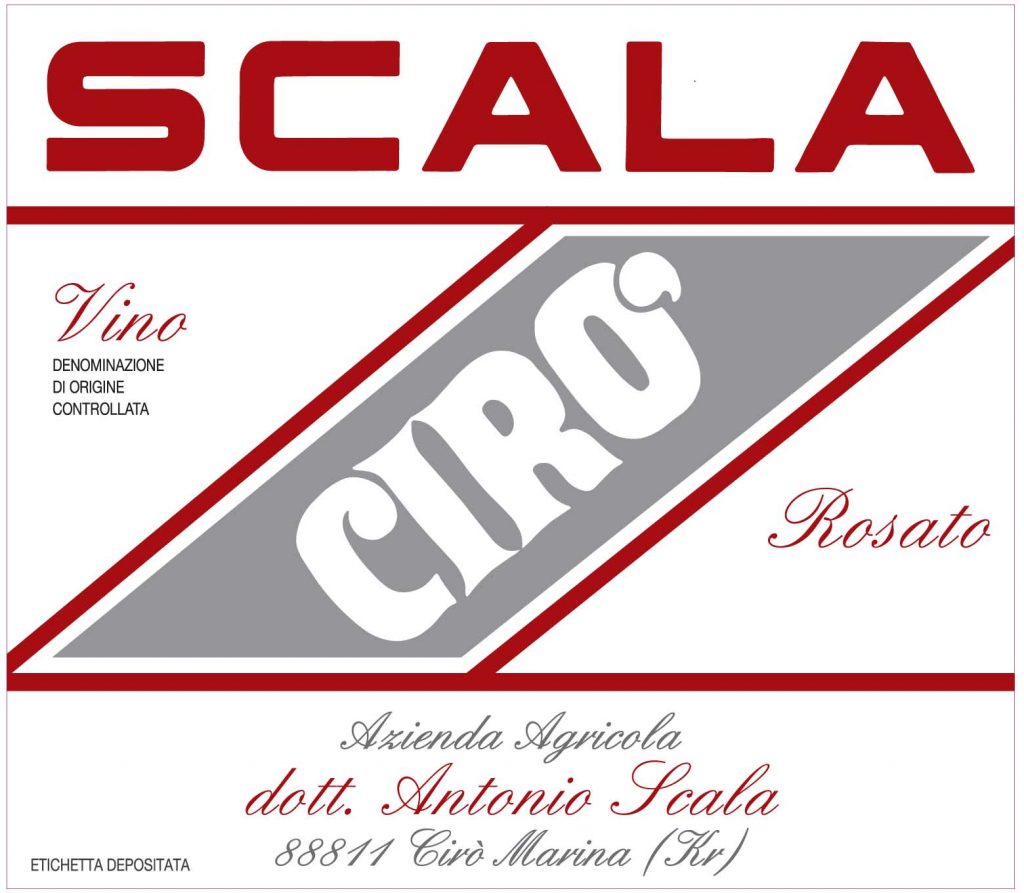
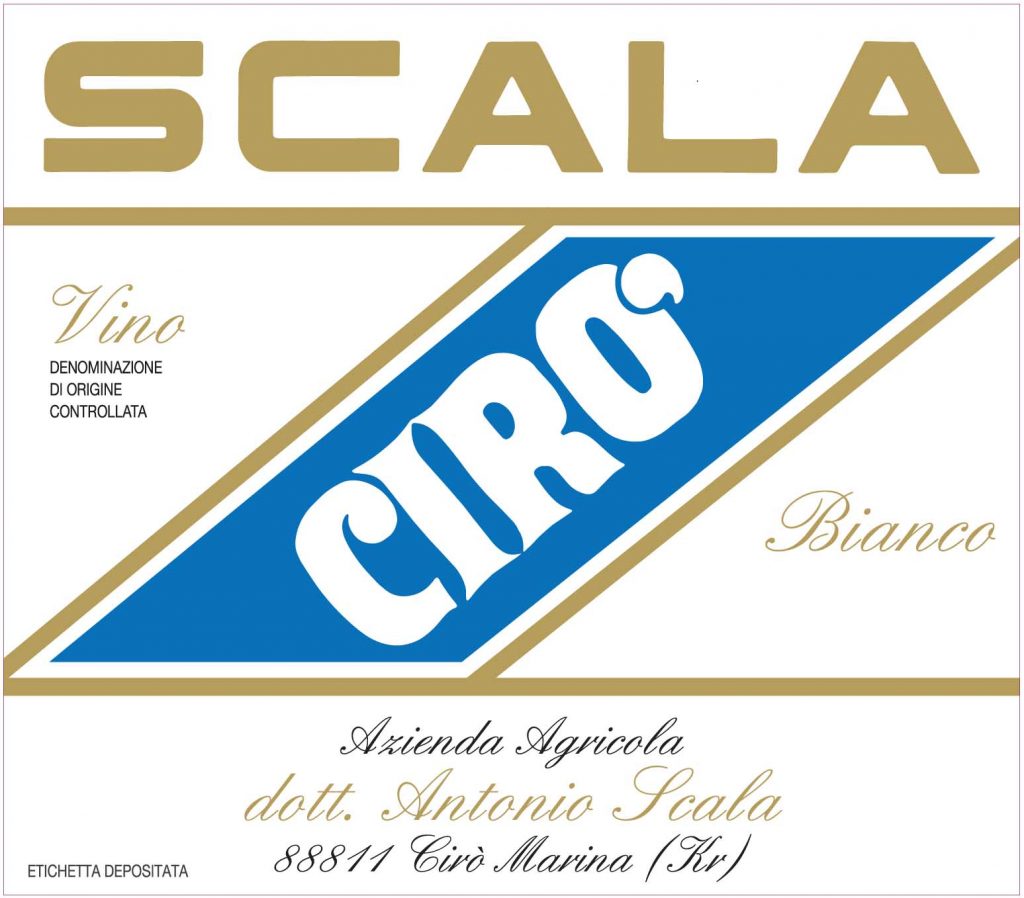
Scala Bianco
100% Greco, from vineyards located in Cirò (Crotone district), 100 to 150 meters above sea level. The vines were planted in 1997 and face south/south-east. They are trained in espalier.
Scala Rosso Classico Superiore
100% Gaglioppo a thick-skinned grape indigenous to Southern Italy and best known for the production of Ciro DOC. The grapes comes from a vineyard called “Franza”, in Contrada Franza (municipality of Ciro), in the region of Calabria. The wine is racked and left in cement tanks for a minimum of 10 to 12 months.
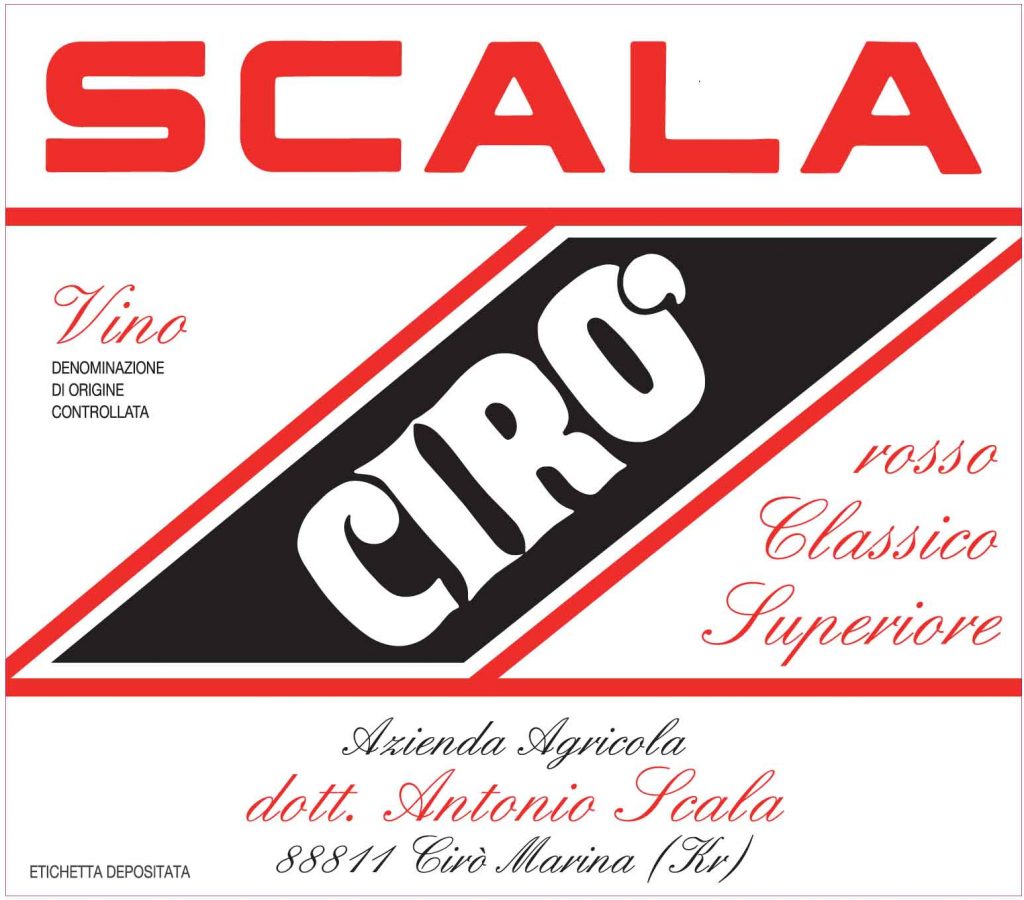
Image Sources: foodiesfeed, WOCinTechChat, GraphBerry
CDV was founded in 2010, when a group of friends led by Angela Sini asks Christian Bellei to join them in the creation of a new, ambitious project: the production of fine Lambruscos through the use of the “Metodo Classico”
• Christian Bellei is a 4th generation winemaker, and he joined the CDV team by providing the perfect setting for the new venture: the winery used by his great-grand father Francesco Bellei in 1920
• Christian received his formal winemaker education from his father Giuseppe, who travelled with him to Epernay numerous times, to learn the secrets of Champagne production
• Together with his father, Christian came to master the “Metodo Classico” technique, and has learnt to successfully apply it to the Lambrusco grapes.
• Christian’s knowledge and skills are at the core of Cantina della Volta’s production: all wines carry his unmistakable signature and unique style
Wines
Brut Rosso
100% Lambrusco di Sorbara, hand selected and harvested, sourced from local growers
• Always vintage dated
• Vinification: “Metodo Ancestrale”, after the first fermentation in tempcontrolled stainless steel tanks, the wine is aged on the fine lees for 6 months, then bottled and re-fermented naturally. Not de-gorged and kept unfiltered.
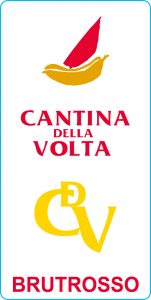
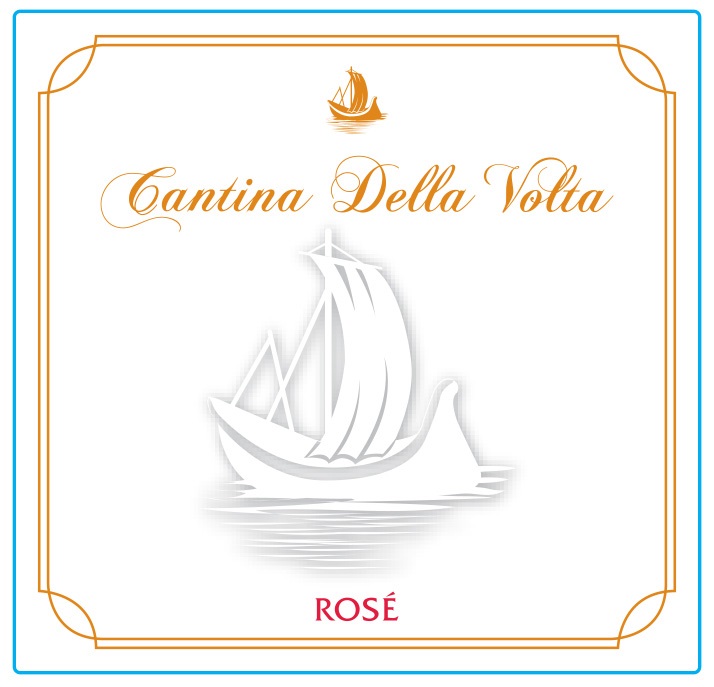
Rosé
Grapes: 100% Lambrusco di Sorbara, hand selected and harvested, sourced from local growers
• Always vintage dated
• Vinification: The first fermentation in temp-controlled Stainless Steel Tanks, followed by 6 months of aging on the lees
• Metodo Classico: second fermentation in the bottle, with at least 36 months on the fine lees.
• Pale pink, with notes of roses and pomegranate, raspberry and wild strawberries. Vibrant and tense,
Image Sources: foodiesfeed, WOCinTechChat, GraphBerry
Fattoria Mancini is a family owned winery and was founded in 1861. The vineyards are about 30 hectares located in the natural park of Mount San Bartolo. Located in the very North End of the Marche region. They sit above the spectacular cliffs of Focara on the Adriatic coast. A few kilometers from the town of Pesaro.
The main grape variety produced is Pinot Nero. Which was introduced in that area in the start of the 19th century during the Napoleonic administration. Also, they produce Albanella, Ancellotta, and Sangiovese.
Being in the heart of a natural park Luigi Mancini works to respect nature and is focused on sustainable viticulture. To avoid the use of chemical herbicides.
Fattoria Mancini only vinifies its own Estate Grapes. They are considered by most to be some of the best Pinot Nero in Italy.
Wines
Pinot Noir
The Focara Pinot Noir is produced with a traditional red vinification, then aged in barriques for 12 months. The area of Focara has distinguished itself over the years and has earned in 2000 the recognition of the DOC Colli Pesaresi Focara Pinot Nero.
Roncaglia
75% Albanella 25% White vinified pinot nero done in stainless steel.
Impero Focara
IMPERO Blanc de Pinot Noir is the result of over forty years of business experience in the white vilification of Pinot Noir and above all the desire to produce an important white using only the varieties historically grown by the family.
Image Sources: foodiesfeed, WOCinTechChat, GraphBerry
1972 is the year when Marsilio Cordella, the founder and Maddalena Cordella’s grandfather, purchased this Noble 600 hectares Estate in Montalcino.
The Cordella Estate, honorary member of the Consorzio del Vino Brunello di Montalcino, with an altitude of 280 to 300 mts on the sea level, ideal for growing the wine’s Sangiovese grape, was dedicated at first to grains and grapes production, before being driven by Maddalena Cordella to a bright wine future.
Maddalena took over the Family Estate in the Tuscan Hills in 1998 from her father, Orlando Cordella a great entrepreneur and man of experience in the agricultural sector.
The 2010 is the year for the Brunello produced at Cordella, becoming an enduring 98 points J Suckling Brunello, vinified and aged in the 1400 square meters about 9 hectares of the carefully maintained vineyards are now assigned to winemaking.
Wines
Brunello DI montalcino
…
BRUNELLO DI MONTALCINO RISERVA
…
ROSSO DI MONTALCINO
….
Image Sources: foodiesfeed, WOCinTechChat, GraphBerry
Tasi | Dialect from Veneto Italian to “shut up” – the verb “keep quiet” [ta’ʧere]
Nestled in the eastern valley of the Valpolicella region Tasi makes its home on the edge of Lessinia Natural Park. The winery is built on top of an old quarry.
Tasi wines are organic certified and biodynamic through choice and passion as they live and work the land everyday.
The vineyard sits in the quarry from the late 19th century, whose walls now frame the winery converted more than ten years ago into an astonishing vineyard. The soil, hard and rich in minerals, forms a strong, luxurious vine
The woods surrounding the vineyard represent the ideal natural isolation which makes it even more perfect for the development of an excellent organic and biodynamic viticulture.
Wines
PROSECCO
Once the wine has completed fermentation, it remains on the lees for 10 days with daily batonage to add body and enhance aromas.
Goto Valpolicella
Grapes are harvested by hand starting from the end of September, with a very careful selection of only the perfectly ripened bunches.
Image Sources: foodiesfeed, WOCinTechChat, GraphBerry
Founded in 2007, the winery Terre di San Venanzio Fortunato takes its name from one of the most illustrious characters of Valdobbiadene. Known as Bishop of Poitiers, Venanzio Onorio Clemenziano Fortunato was born in Valdobbiadene in the sixth century AD; he was the author of some magnificent texts on the cultivation of vines and wine, as well as of numerous sacred hymns still used today by the Church.
The name of their cellar evokes values and ties that are so strong and binding for them: the land, splendid and demanding; the roots of an inimitable wine culture dating back centuries; the poetry of a fascinating profession and a project to be cultivated; the omen, or better still, the awareness of the “good fortune” of anyone can live in and know these lands.
They decided to pursue a small-scale but meticulous production of Valdobbiadene Prosecco Superiore DOCG, in the versions of Brut, Extra Dry, Dry Vintage, Superiore di Cartizze and since 2015 Brut Demi Long® . This excellent production is the fruit of a careful selection of grapes all cultivated in Valdobbiadene, and of a rigorous and professional processing, that is the least invasive possible. The grapes undergo gentle crushing, and the last 10% is rejected and down-graded. The processing includes very strict controlling of the temperature of the wine in all the phases in order to preserve the typical aromas of the Valdobbiadene Prosecco Superiore, as well as a long series of decanting procedures to obtain a completely natural settling of the wine.
Wines
TERRE DI SAN VENANZIO prosecco DOCG
100% Glera from the best D.O.C.G. hills of Valdobbiadene.
Straw yellow color, brilliant thanks to the integration of “perlage” and bubbles.
Green apple and pear with great fresh aromatic notes. continuous and lively in the mouth, slightly sweet at first but perfectly balanced.
Image Sources: foodiesfeed, WOCinTechChat, GraphBerry
Malibràn winery is in Susegana, a little town amidst the hills that range from Conegliano towards Valdobbiadene, at the foot of San Salvatore Castle.
The winery has a long tradition of viticulture, more than three generations. In the first half of the 1900s, in fact, the grandfather Gregorio, far-seeing farmer in Col San Martino, decided to transfer his property to the flowing hills of Susegana where the clay soil contributes to the development of more full-bodied and complex wines.
Maurizio, enologist and owner, maintains his grandfather’s tradition. Since 2003 he has taken care of the enological part of the winery and, to complete the process from the vineyard to the bottle, he projected the cellar, which is equipped with the appropriate wine-making machinery, where, at present, the grapes are changed into sparkling wine, then bottled and packed.
“I’ve got my own unique style that I like and I believe in, a wine that I know people that enjoy Prosecco Superiore will appreciate. Wines from this area are all special, all unique, we are respectful to our area and know the style of wines in produce.”
Wines
PROSECCO 5GRAMMI
Grape harvesting is manually done by soft pressing of whole grapes and put in small containers. The aroma is light and flowery with a scent of rose and a harmonious and complete scent of ripe apples and pears with hints of citrus fruit. Altogether dry, fragrant and well-balanced with a soft and progressive carbonic development.
CREDAMORA COL FONDO
Since ancient times, Prosecco was bottled with its own yeasts, and then it was placed to rest in the house’s cellar. During this period refermentation took place in the bottle, remaining sugars turned into twisting bubbles, and so the Prosecco, after a few months, became fizzy. The wine was ready to be tasted with its own refermentation’s yeasts, which were lying at the bottle’s bottom, that’s where the name “Col Fondo” comes from (Sur-lie). Malibran commits itself to rediscovering ancient tastes, offering this kind of Prosecco just as it was made in ancient times.
Image Sources: foodiesfeed, WOCinTechChat, GraphBerry
The Nunzi Conti Family began their adventure in the wine business at the end of the 1800 when young Gualtiero Nunzi left his small village in the Tuscan mountains and moved to Florence.
After arriving in the Tuscan capital, he undertook a string of very different but profitable jobs and after only a few years, Gualtiero was able to make his dream come true purchasing the family’s first vineyards in Val di Pesa in the heart of the Chianti Classico area.
When Gualtiero passed away, the winery was inherited by his eldest son, Antonio, who carried on the family tradition with the same dedication of his father. Antonio strongly believed in the area’s vocation for winemaking and was one of the founders of the Consorzio del Vino Chianti Classico Gallo Nero.
CREDAMORA COL FONDO
A few years after the end of the second world war, Antonio’s brother, Gualtiero Armando focused all his business in viticulture and on May 26, 1970, he was made Vice President of the Consorzio Vino Chianti Classico and held the role of President between 1994 and 1997. With the entrepreneurial approach, Gualtiero Armando planted new vineyards, purchased more land and built a profitable and efficient winery whilst respecting the beauty and nature of the extraordinary countryside of Chianti hills.
In 1965 he purchased the 15th century Villa Pancani that was later named Villa Barberino. Today the Villa and surrounding land remains the heart of the Nunzi Conti family estate. Today Antonio and Isabella, assisted by winemaker Giampaolo Chiettini, manage the winery with the same passion and dedication that drove young Gualtiero at the end of the 1800s.
Wines
Chianti classico
This wine is made from a careful selection of grapes, fully produced in our estate.
chianti classico Riserva
Our Riserva, the most prestigious wine in the Chianti tradition, holds rich aromas that only Sangiovese cultivated on our lands can produce.
100% in barrel for least 18 months followed by minimum 6 months aging in the bottle.
